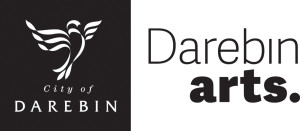
MK-ALPHA
in association with Darebin Arts’ Speakeasy presents
The Trouble with Harry
by Lachlan Philpott
Harry Crawford and his wife Annie seem ordinary enough; together they lead quiet, unexceptional lives in the suburbs of 1920s Sydney, working and raising a child.
But when a strange girl arrives at the door, it sets in train a series of events that will result in an astounding revelation – and, ultimately, sow the seeds of bloody murder.
Lachlan Philpott rips back the curtains on the true case of Eugenia Falleni AKA Harry Crawford, the notorious ‘Man-Woman’ murderer that scandalised 1920s Sydney exploring ideas of gender, perversion and complicity.
WARNING
This performance contains adult themes and mild language.
Reviews
Green Room Award Winners
For Direction
- Alyson Campbell – The Trouble with Harry (MKA/Darebin Arts’ Speakeasy/Melbourne Festival)
For Production
- The Trouble with Harry – presented by MKA: Theatre of New Writing and Darebin Arts’ Speakeasy in association with the Melbourne Festival
Green Room Award Nominations
For Female Performer
- Maude Davey – The Trouble with Harry (MKA, Darebin Arts’ Speakeasy/Melbourne Festival)
- Caroline Lee – The Trouble with Harry (MKA, Darebin Arts’ Speakeasy/Melbourne Festival)
For Set and Costume Design
- Eugyeene Teh – The Trouble with Harry (MKA, Darebin Arts’ Speakeasy/Melbourne Festival)
For Lighting Design
- Rob Sowinski – The Trouble with Harry (MKA, Darebin Arts’ Speakeasy/Melbourne Festival)
For Sound/Music
- Chris Wenn (Sound Design) – The Trouble with Harry MKA/Darebin Arts’ Speakeasy/Melbourne Festival)
For Writing
- Lachlan Philpott, The Trouble with Harry, presented by MKA: Theatre of New Writing and Darabin Arts’ Speakeasy in association with the Melbourne Festival
SCRIPT
NOMINATED FOR AWGIE 2013 AWARD
Reviews
“MKA are major contributors to Australia’s theatrical landscape.. A brilliant new Australian play… Unmissable.”
★★★★★ and Critic’s Choice
TIME OUT
“An excellent new Australian play.. complex and inspired direction… writing of great vigour and sensitvity.. Maude Davey is striking”
★★★★1/2
THE AGE
“New and Spectacular… Maude Davey is extraordinarily good… A vision worth savouring.”
★★★★1/2
DAILY REVIEW ~ CRIKEY
“The Trouble With Harry demonstrates the strength of Australian independent theatre.”
THE MUSIC
“The Trouble with Harry is a fascinating exploration into the performance of gender.”
AUSSIETHEATRE
“MKA’s rise in the Melbourne Theatre scene has been meteoric… Interesting, stimulating and refreshing theatre. This is no exception… Rich and entertaining..”
STAGE WHISPERS
“The performances are strong from the entire cast but a particular mention must be made of Maud Davey”
KATE HERBERT
Credits
Premiere Season
Writer – Lachlan Philpott
Director – Alyson Campbell
Cast – Maude Davey (My Life in the Nude), Elizabeth Nabben, Emma Palmer, Dion Mills, Daniel Last and Caroline Lee
Set and Costume Designer – Eugyeene Teh
Lighting Designer – Rob Sowinski
Sound Designer – Chris Wenn
Producer – John Kachoyan for MKA
Associate Producers – Eric Gardiner & Corey Reynolds
Production Manager – Gideon Cozens
Stage Manager – Harriet Gregory
Choreographer – Georgia Taylor
Assistant Director – Alice Darling
Design Assistants – Rebecca Dunn and Shane Thompson
Sound System Designer – Geoff Adams
Trailer
Partners
Presented with

in association with

with support from

Dates
Premiere Season
presented with Darebin Arts Speakeasy
in association with
Melbourne Festival, Oct 2014
17Oct-9Nov, Northcote Town Hall
Stills





Rehearsal Stills
Notes
This provocative play tells the complex story of one of Australia’s most fascinating female criminals. The production demands a large performance space, visionary direction, innovative design and astute brave actors. MKA enlisted a killer team of artists to ensure the Australian premiere delivers.
Philpott’s play takes the true story of Eugenia Falleni, who passed as a man in early 1900s Sydney, as its starting point. Falleni lived as Harry Crawford and in 1920 was convicted of the murder of ‘her’ wife. Responding to historical and biographical material Philpott has produced a play that takes the audience inside the most intimate spaces to witness Falleni’s relationship with “his” wife Annie Birkett and how things unravelled when revelation of long- held secrets lead to murder. Philpott’s play responds imaginatively to persistent and sensationalist speculation about the Falleni case and offers the audience a very human side of the story with focus on the shifting dynamics in domestic relationships.
The Trouble with Harry has been four years in development. In 2010 Belvoir and Focus Theatre were funded by The Australia Council to commission Philpott to write the play. He carried out extensive interviews with a range of transgender people in Australia and New Zealand and worked closely with The Historic Houses Trust to research both Falleni’s case and Australian society in this period. When it comes to dramatizing the material, it presents a number of challenges because there are so many unanswered questions at the heart of this story. How did Falleni pass as a man during years of marriage? How could ‘his’ wife not have known? [What went on in the bedroom?] Why did it end in murder? To explore such questions in an engaging way, Philpott employs playful devices which engage the audience in their own speculation. Just when the audience think they have an answer, they are presented with evidence that makes them question what they think they know, thus producing a fluidity in the play’s dramaturgy which both frames, shifts and affects the audiences experience of the material and their sense of complicity in the way the story unfolds on the stage. It has taken some time and testing to establish this dramaturgical framework and get the script ready for production. Philpott has worked with many Australian and international artists to develop this play. Developments have been supported by PlayWriting Australia, The Playwrights Foundation San Francisco and TheatreofPluck and OUTburst Queer Arts Festival, Belfast. MKA believe that the long percolation of this work is evident in the script which seems deceptively simple but calibrates an astounding range of research with a complex and sensitive understanding of human relationships and fascinating exploration of gender. MKA are excited to have the opportunity to produce the Australian premiere. Prior to the MKA season, the play premiered in Belfast in late 2013, also directed by Alyson Campbell. The play was published by Oberon UK in late 2013.
Falleni’s story was recently told in QC Mark Tedeschi’s best-selling book Eugenia. Offering a more ambiguous and open interpretation, Philpott’s play offers a provocative dramatization of Falleni’s relationships and encourages its audience to challenge assumptions about our perception of gender and sexual orientation by questioning heteronormative assertions about the nature of the two women’s relationship. Against a highly evocative background of Australia in the 1920s, The Trouble with Harry explores lesbian and trans identities at a time before they became established as identity categories. This play offers six actors a chance to explore formally inventive, complex text by a writer who is building a reputation as one of Australia’s most compelling writers.














